POTS, the "silent" illness: For those affected, it can be life-altering
MILWAUKEE -- Postural orthostatic tachycardia syndrome or POTS is something many of you have never heard of, but if you have it, or have a loved one who has it, it can be life-altering.
"It was so exciting to see so many people come out together -- so many families and POTS patients all come together and meet each other and make a support network," said Maria Patrizzi.
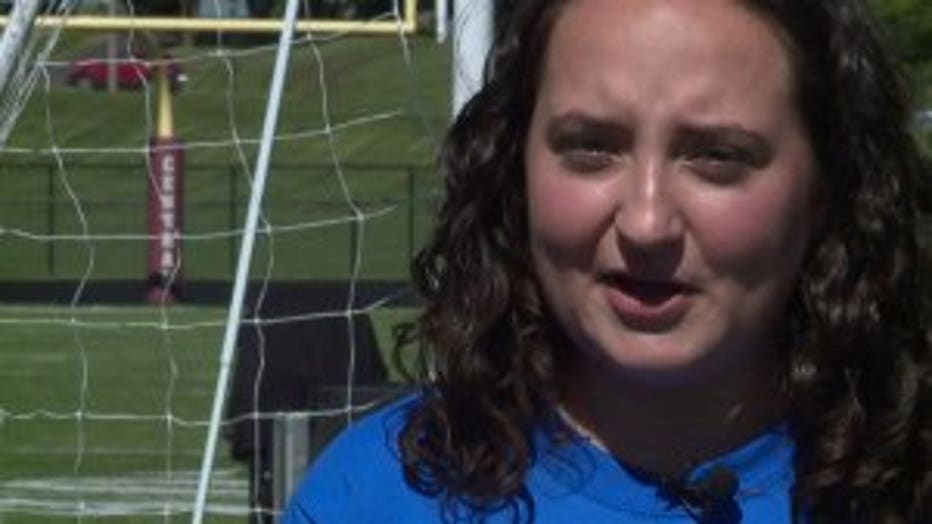
Maria Patrizzi
Patrizzi has POTS. The dynamic young woman held a run/walk for the cause in Kenosha County last September.
"POTS stands for postural orthostatic tachycardia syndrome. It is a malfunction of the nervous system. It's a form of dysautonomia," said Patrizzi. "People with POTS have really high heart rates and really low blood pressure. Dizziness, fatigue, fainting, brain fog, memory concentration problems."
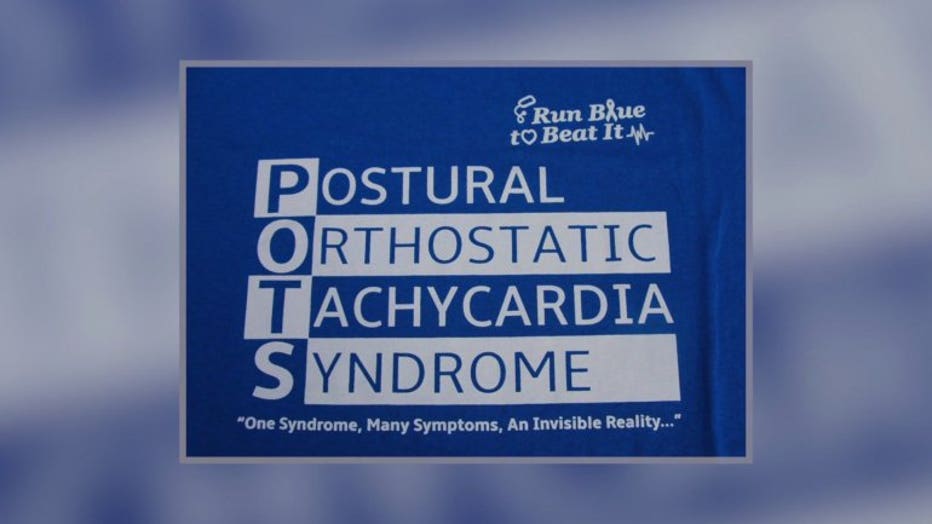
POTS syndrome
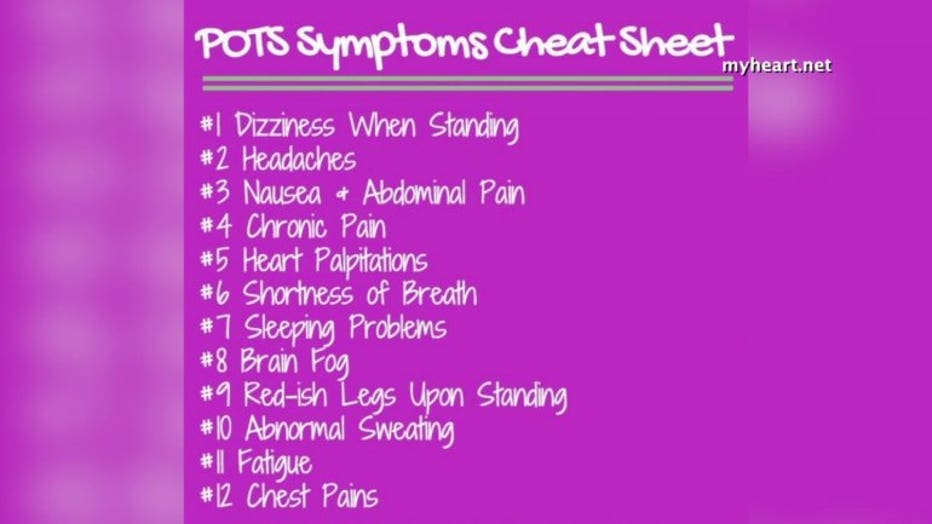
POTS syndrome
Patrizzi and her team raised almost $5,000 for POTS awareness and research.
FOX6 News thought the story ended there, but we were wrong.
After FOX6 posted on Facebook, it was stunning to learn about the number of people who have POTS or have loved ones dealing with the mysterious syndrome. POTS is so far-reaching that it could impact more than three million people in the United States alone.
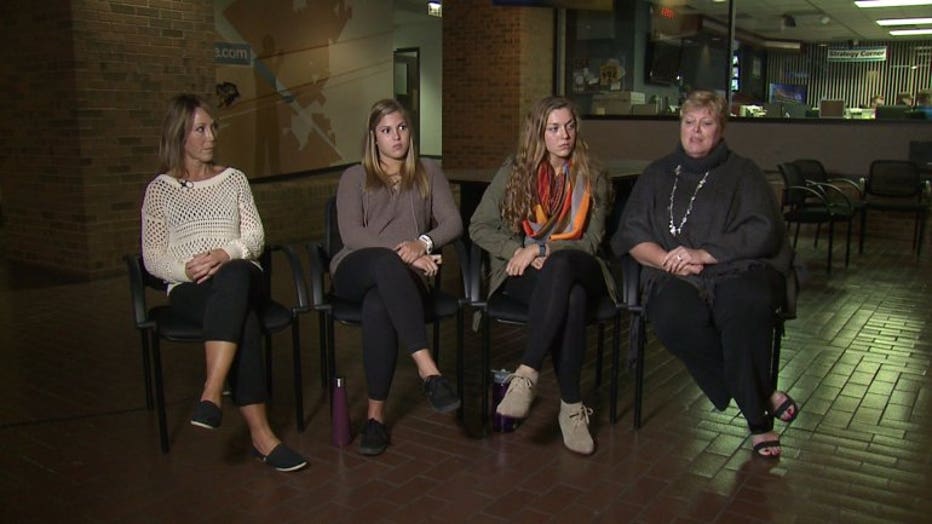
"A nightmare. Very painful for parents to watch your children suffer. Painful to watch them give up so much of their childhood," said Joy Czarnik.
Czarnik and her three children have POTS.
FOX6 News spoke with two local families whose lives have been turned upside down by POTS.
Czarnik found out that she has POTS when her children were diagnosed.

Czarnik family
"It's very real and it's very painful. My husband and I used to say that a good day in our house was when all three children could get up and go to school. It is very difficult to watch your children go through such a debilitating disorder, and you just don't understand why. I think there have been many times that we've said, 'Why? Why not one, not two, but three of our children?'" Czarnik said.

Hana Christiansen
"At times, when we were first diagnosing and working through this with Hana, that school year she missed 85 days of school. That took over my life that year, and when she told me about three children, I mean, that's incredible," said Christa Christiansen.
Christianson's daughter, Hana, has POTS. She knows first-hand how difficult it is to recognize what's been described as an "invisible illness."
"Me being a nurse and knowing all of this and looking at her too, I even struggled with that in the beginning. They do look fine, and I think they're having all this behind-the-scenes that no one really understands," Christiansen said.

Aubrey Czarnik
"Our kids can look perfectly fine and be so incredibly sick. They can have episodes that come on so quickly. We've had episodes at our house where the kids get up, they shower, they're ready to walk out the door for school, and in a 20-minute window they've gotten too sick and they no longer can go to school," Czarnik said.
Indeed, POTS patients "can" feel and look fine one moment, and the next their hearts are racing as if they've just run a marathon. With no warning, they can experience big problems.
"I was driving to school one day and I just called my mom and I was like, 'Mom, I can't go to school. Can you call me off school? I'm coming home.' It can change in like a 10-minute drive to school," said Hana Christiansen.
"It's hard. It's really hard, because you don't look like you're sick. It was a big problem and it sucks to have it," said Aubrey Czarnik.

Aubrey Czarnik
Aubrey Czarnik has been through the frustration of trying to find the best method of treatment for her POTS.
"It's basically trial and error with all the medications they put you on. It took about two years of trying different combinations before I had a good school year, which was my sophomore year," Aubrey Czarnik said.
Hana Christansen has had to go to the ER twice in the past five months.
"At it's worst it's basically, I'm in my room, door shut, lights out, kind of isolated from everybody and phone's off. Just taking my time to let it run it's course," said Hana Christiansen.
Their journeys have been very difficult but Hana Christiansen and Aubrey Czarnik are making the best of it.
"If I were to change things, I would not take what I have away because honestly it's taught me how to self advocate for myself. It's taught me how to organize things, to follow a strict schedule. It's just all this stuff that's made me who I am," Aubrey Czarnik said.
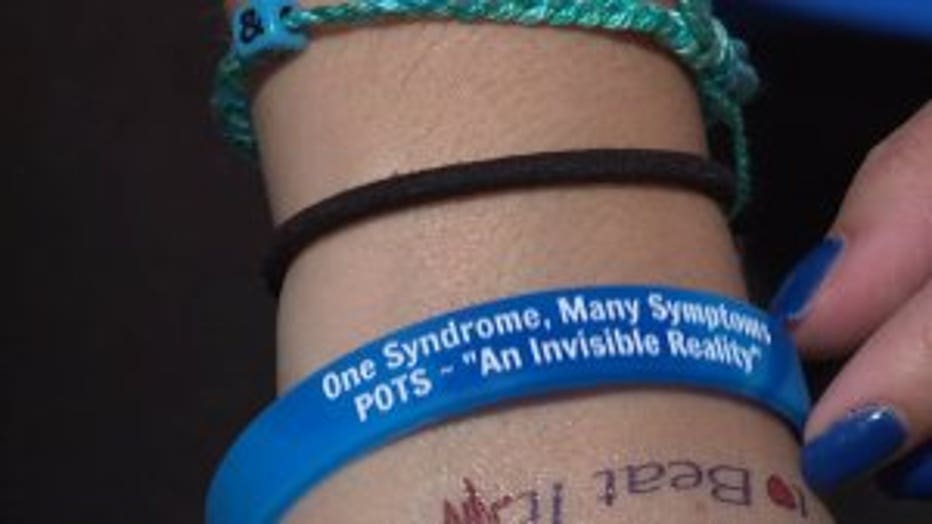
POTS syndrome
"Even if you're scared to talk about it and say that you have this thing, and people will think that you're crazy and people will think like, 'Oh she's faking it' or whatever. I've had a lot of people tell me that. To advocate for yourself and make sure that people are aware of what you have, whether it's at school, or at your job," Hana Christiansen said.
"I guess for everyone it's easy to judge. Just keep in mind that a lot of times, there's a lot of things going on behind a beautiful smile and a pretty face of young girl -- that she's suffering and not feeling well," Christa Christiansen said.
"Our faith is definitely what's carried us through. There have many many dark days, a lot of tears shed and to this day there are a lot of tears shed. Because there is no cure, I know there will be many tears shed in the future," Joy Czarnik said.
"I explain that to my patients and I say, 'our job together as a team is to make your brain and body reconnect, re-harmonize in a positive way.'" said Dr. Tom Chelimsky.
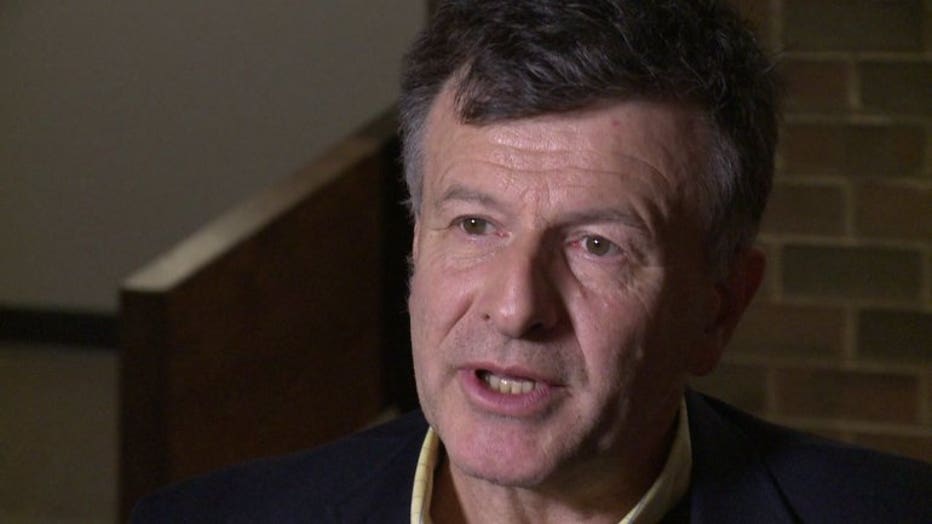
Dr. Tom Chelimsky
Thursday night on FOX6 News, two POTS experts will offer a ray of hope for individuals and families dealing day-to-day with the invisible illness.

